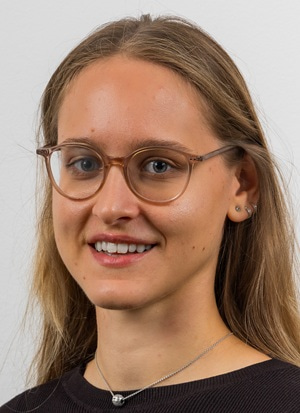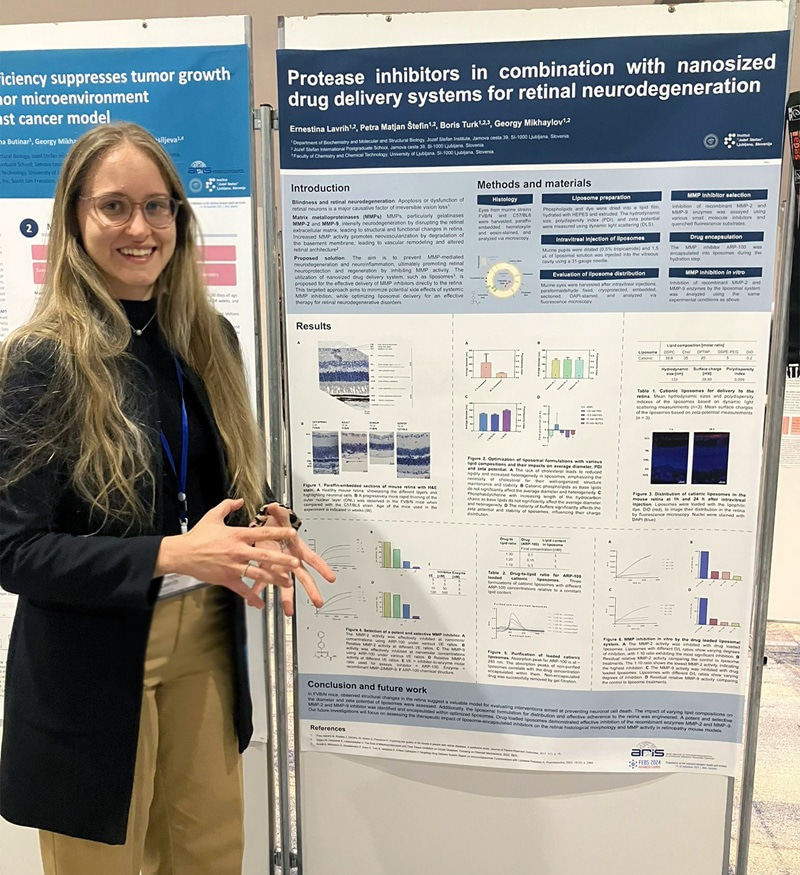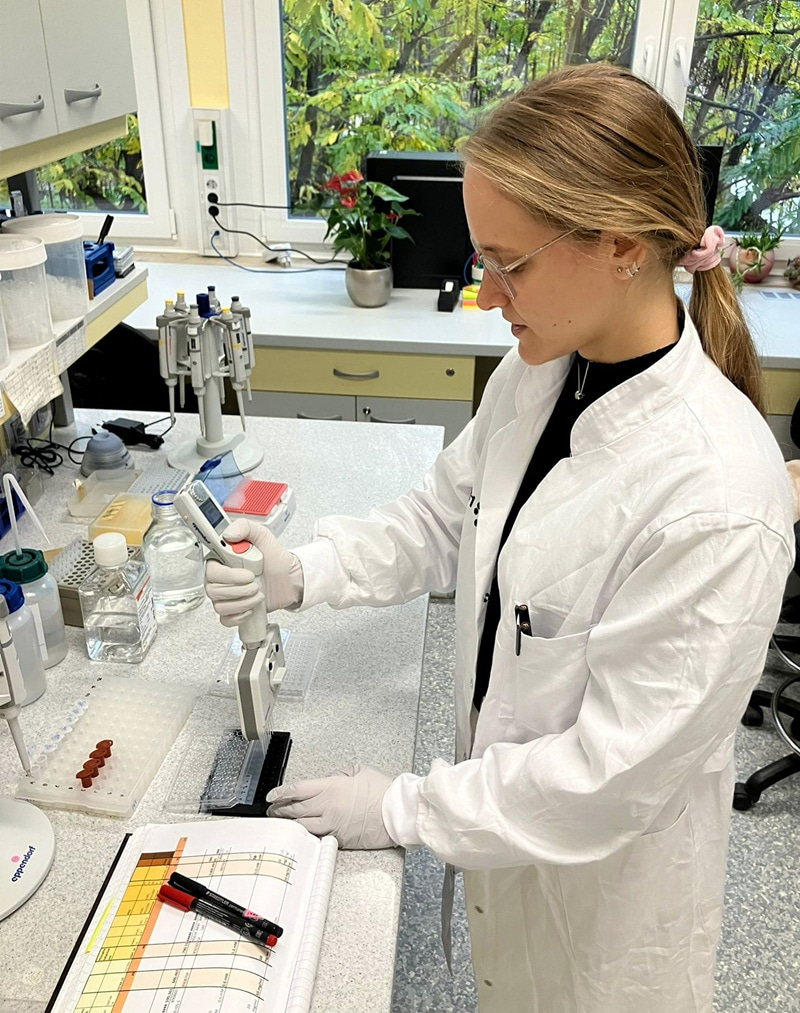Meet Ernestina Lavrih: FEBS Advanced Courses 60th Anniversary Awardee

Our interviewee is Ernestina Lavrih, a PhD student at the Jožef Stefan Institute Ljubljana, in Slovenia, and a member of Slovensko biokemijsko društvo (SBD) – the Slovenian Biochemical Society, a FEBS Constituent Society. Ernestina received a FEBS 60th Anniversary Award during the FEBS Workshop Course 'Proteolysis: at the interface between health and disease' (14–18 September 2024) in Bled, Slovenia.
Tell us about your research topic/work. What project(s) are you working on? What is the aim of your study?
My research focuses on developing a targeted therapy for retinal neurodegeneration using a nanosized drug delivery system to deliver protease inhibitors directly to the retina. Retinal neurodegeneration, one of the leading causes of blindness worldwide, is driven by the dysregulated proteolytic activity of matrix metalloproteinases (MMPs), leading to neuroinflammation and cell death. By encapsulating MMP inhibitors in lipid nanoparticles designed for non-invasive application, we aim to achieve localized inhibition, thereby preventing retinal neurodegeneration while minimizing the side effects associated with systemic treatments.

Who or what inspired you to choose a career in science?
Science offered me the perfect blend of curiosity and creativity, where every question opens a door to something new and each discovery brings fresh perspectives. I am also daily inspired by my closest colleagues, whose expertise spans veterinary science, pharmaceutical sciences, and structural biology, broadening my perspectives and enriching our work.
How did you learn about the FEBS Advanced Course? Why did you choose this course to attend?
I learned about FEBS Advanced Courses through my research community and recommendations from colleagues who had previously attended. This FEBS Advanced Course was organized by the Department of Biochemistry, Molecular and Structural Biology at the Jožef Stefan Institute, where I am a researcher. The focus on proteolysis and its role in health and disease aligned well with my research on matrix metalloproteinases in retinal neurodegeneration.
How does attending this course influence your present and future plans? What are the benefits of attending the FEBS Advanced Course?
Attending this course has expanded my understanding of proteolytic mechanisms and their relevance to health and disease. Learning from experts and interacting with peers has enriched my approach to experimental design and problem-solving, providing new insights for my current and future research.

What work were you presenting at the FEBS Advanced Course?
I presented a poster titled “Protease inhibitors in combination with nanosized drug delivery systems for retinal neurodegeneration”. This work outlines the development of lipid nanoparticle-based drug delivery systems for targeted MMP inhibition in the retina. My poster presentation covered key aspects of liposome formulation, optimization, and the potential for intravitreal delivery, aiming to showcase the promise of localized protease inhibition in treating retinal neurodegenerative disorders.
How does it feel to receive a FEBS 60th Anniversary Award at a FEBS Advanced course as recognition for your work? How do you see this Award influencing your career and future?
Receiving the FEBS Advanced Courses 60th Anniversary Award is both an honor and a motivation to continue my research. This recognition from FEBS is a validation of the importance of my work and has further inspired me to push forward, knowing that my contributions are valued within the scientific community and can make an impact.

What is your advice to aspiring students/scientists?
My advice is to remain curious, be resilient in the face of challenges, and seek interdisciplinary knowledge. Science is demanding but rewarding, and by embracing both failures and successes as learning opportunities you can make valuable contributions to knowledge.
Where do you envision the future of your career?
I envision a career in translational research, bridging biochemistry and clinical applications to develop targeted therapies for neurodegenerative diseases. I hope to continue in academia or research institutions where I can work on projects that bring laboratory discoveries closer to real world applications, ultimately contributing to treatments that improve patients' lives.
For more information about the FEBS Advanced Courses programme visit the FEBS website.
Photo by Alexander Grey on Unsplash.





Join the FEBS Network today
Joining the FEBS Network’s molecular life sciences community enables you to access special content on the site, present your profile, 'follow' contributors, 'comment' on and 'like' content, post your own content, and set up a tailored email digest for updates.